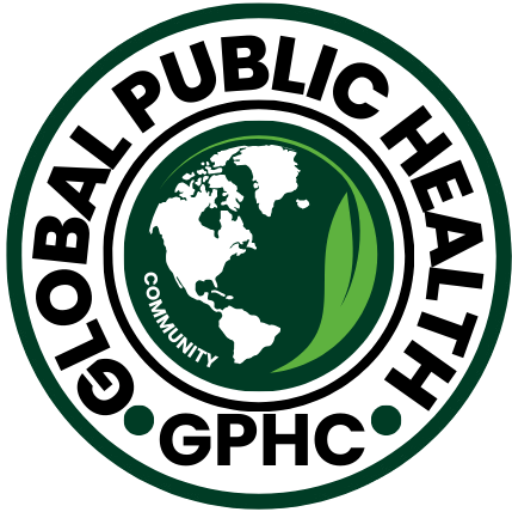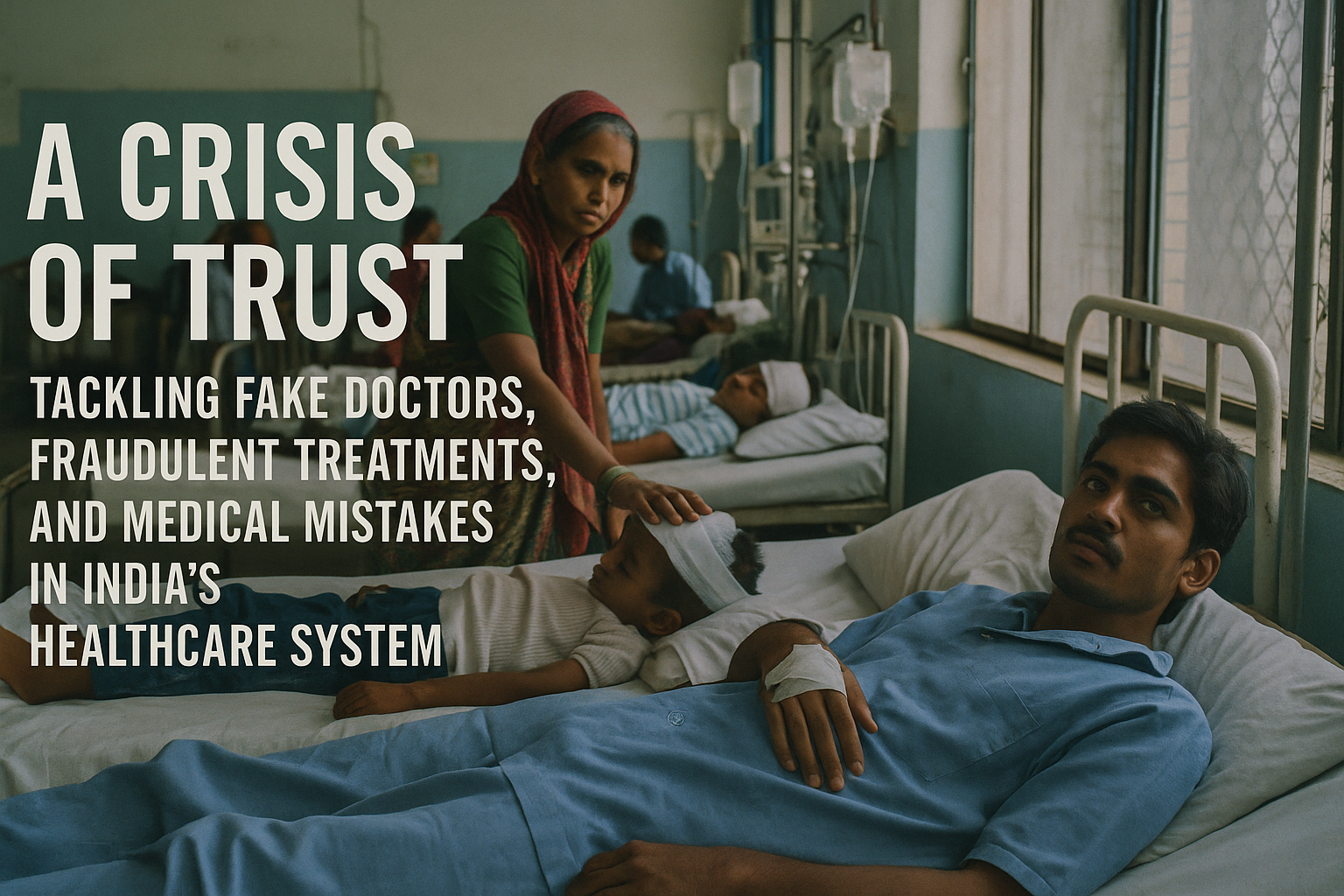India’s healthcare system, a complex and vast network serving over a billion people, faces significant challenges that undermine patient safety and erode trust. Among the most critical issues are the alarming presence of fake doctors, the proliferation of fraudulent medical treatments, and the persistent problem of medical mistakes. These factors create a precarious environment for patients, with tangible and often devastating consequences.
The issue of unqualified individuals practicing medicine, often referred to as “quacks,” is a deeply entrenched problem in India. While precise, universally agreed-upon statistics are hard to come by, a controversial 2016 World Health Organization (WHO) report highlighted the potential scale of this issue, suggesting that a significant percentage of individuals practicing allopathic medicine in India may not hold recognized medical qualifications. Although the Indian government disputed the methodology and the headline figure of 57.3% unqualified practitioners cited in some interpretations of the report, the existence of a substantial number of individuals practicing without proper training and certification is widely acknowledged. Recent actions by authorities and court directives against such practitioners underscore the ongoing nature of this challenge. These fake doctors often operate in areas with limited access to qualified healthcare, preying on vulnerable populations who may not have the means or awareness to verify their credentials. The treatments provided by these individuals are often ineffective, delayed, or actively harmful, leading to worsening health conditions, financial exploitation, and tragically, sometimes even death.
Fraudulent medical treatments further compound the problems within the system. This encompasses a wide range of deceptive practices, from unnecessary procedures driven by financial incentives to the promotion of unproven therapies and outright cheating. Healthcare fraud in India includes issues like:
- Inflated Billing and Insurance Fraud: Fraudulent billing practices, such as upcoding (charging for a more expensive service than provided) and unbundling (billing multiple times for services usually covered under one fee), are reported. While difficult to quantify precisely across the entire system, studies and reports on government health insurance schemes have indicated significant financial losses due to fraudulent claims, estimated to be in the range of INR 6,000–INR 8,000 million (approximately US$ 92–US$ 123 million) per year according to a 2018 document.
- Unnecessary Medical Procedures: The over-recommendation of diagnostic tests, surgeries, and other procedures for financial gain is a serious ethical and safety concern.
- Counterfeit and Substandard Drugs: The menace of fake or poor-quality medications entering the supply chain poses a direct threat to patient health, rendering treatments ineffective and potentially causing severe adverse reactions. The Drugs and Cosmetics Act, 1940, and subsequent amendments aim to regulate the quality and authenticity of drugs, but enforcement remains a challenge.
India has a legal framework to combat healthcare fraud, including provisions in the Indian Penal Code (like Section 420 for cheating and Section 468 for forgery), the Prevention of Corruption Act, and the Consumer Protection Act, 2019. Regulatory bodies like the Medical Council of India (now the National Medical Commission) also have regulations addressing unethical conduct by medical professionals. However, the complex nature of these crimes and challenges in investigation and prosecution mean that a significant number of fraudulent activities likely go undetected. The lack of adequate awareness among patients about their rights and avenues for redress also contributes to the perpetuation of these issues.
Medical mistakes, distinct from intentional fraud but equally detrimental to patient safety, are another critical area of concern. These errors can occur at any point in the healthcare process and are often a result of systemic issues, human factors, or a combination of both. Common types of medical mistakes reported in the Indian healthcare setting include:
- Medication Errors: A study highlighted medication errors as a key challenge to patient safety in Indian hospitals, citing issues like improper labelling, dosage miscalculations, and unsafe injection practices. The study also indicated that a significant percentage of nurses reported feeling pressured to compromise patient safety for efficiency.
- Surgical Errors: While data on the exact incidence of surgical errors in India is limited, they are a recognized problem. These can range from minor complications to serious incidents like wrong-site surgery or retained surgical instruments.
- Healthcare-Associated Infections (HAIs): Infections acquired by patients during their hospital stay remain a significant cause of morbidity and mortality. Factors such as inadequate infection control protocols, overcrowding, and 부족한 (bhujakhan – insufficient) hygiene practices contribute to the prevalence of HAIs.
- Diagnostic Errors: Delays or inaccuracies in diagnosis can lead to delayed or inappropriate treatment, negatively impacting patient outcomes.
Estimates suggest that medical errors contribute to a substantial number of adverse events and deaths globally, and India is not immune to this reality. A 2013 estimate suggested that India witnesses millions of medical injury cases annually, resulting in a significant loss of healthy life years. The underreporting of medical errors is a significant challenge, making it difficult to ascertain the true scale of the problem. Factors contributing to medical mistakes in India include the high patient load on healthcare professionals, inadequate nurse-to-patient ratios, communication gaps, lack of standardized treatment guidelines, and variations in the quality of infrastructure and training across different healthcare facilities.
The cumulative impact of fake doctors, fraudulent treatments, and medical mistakes is a severe erosion of patient trust in the healthcare system. This lack of trust can lead patients to delay seeking necessary medical care, opt for unproven alternative therapies, or travel long distances in search of perceived better quality care. Beyond the individual patient level, these issues strain the healthcare infrastructure, increase healthcare costs, and hinder the nation’s progress towards achieving universal health coverage and improving public health outcomes.
Addressing these deeply rooted problems requires a multi-pronged approach. Strengthening regulatory oversight and enforcement is paramount to crack down on unqualified practitioners and fraudulent activities. This includes more stringent licensing and accreditation processes for healthcare facilities and professionals, as well as robust mechanisms for investigating and prosecuting those who engage in fraudulent practices. Improving transparency in billing and treatment processes, coupled with increased public awareness regarding patient rights and avenues for grievance redressal, can empower patients to identify and report suspicious practices.
Furthermore, a significant focus is needed on improving patient safety within healthcare institutions. This involves investing in training and capacity building for healthcare professionals, implementing standardized protocols and checklists, improving staffing levels, fostering a culture of open reporting and learning from errors without fear of retribution, and adopting technology to minimize the risk of mistakes.
In conclusion, the challenges posed by fake doctors, fraudulent treatments, and medical mistakes are significant impediments to providing quality healthcare in India. Addressing these issues effectively requires a sustained and coordinated effort from the government, regulatory bodies, healthcare providers, and the public. Building a healthcare system that is not only accessible and affordable but also fundamentally safe and trustworthy is crucial for the well-being of the nation.




